Johann Reinhold Forster (1729–1798) and his son George Forster (1754–1794), polymaths, travelled as naturalists on James Cook’s second great voyage of exploration, on the Resolution between 1772 and 1775. Johann Forster was not a natural seaman, and his journal paints a sensitive picture of the hardships of the expedition as well as the peoples, animals and plants encountered on its course. The Admiralty barred Johann from publishing on the trip, but George wrote an outstanding scientific account of it that became a bestseller. Henceforth the Forsters were renowned as the European experts on the Pacific. George’s essay ‘Neuholland und die brittische Kolonie in Botany-Bay’ (1786) was an upbeat description of the geography, Indigenous inhabitants and resources of the nascent colony, for which he predicted a bright future. His long essay Cook, der Entdecker (Cook, the Discoverer), published in 1787 as the introduction to his German translation of the account of Cook’s third, fatal voyage, was the first major contemporary assessment of James Cook, and it remains the only substantial account of the great man by someone who knew him well.
Though only recently published in English, Cook, the Discoverer is now recognised as the starting point for the vast academic and popular enterprise that Cook scholarship has since become. In the early 1790s, before he predeceased his father, George Forster reviewed accounts of the new land by Watkin Tench, Arthur Phillip and John White for German readers. In this way he contributed greatly, as did Johann Forster, to German interest in the Antipodes.
The French/ Italian artist Jean Rigaud (1742–1810) trained in Italy, where he became a member of the Bologna Academy in 1766. Relocating to England in 1772, he exhibited at the Royal Academy, and was made an Academician in 1784. Though painted in London, the Forsters’ portrait is set in New Zealand. Johann is depicted with a sprig of Forstera sedifolia tucked in his hatband and a bellbird (Anthornis melanura) in his hand; specimens of a wattlebird, a saddleback and a honeyeater lie lifeless on the ground.
Purchased with funds provided by the Liangis family, the Ian Potter Foundation and John Schaeffer AO 2009
Jean Francois Rigaud (age 38 in 1780)
Johann Reinhold Forster (age 51 in 1780)
Johann Georg Forster (age 26 in 1780)
The Ian Potter Foundation (13 portraits supported)
Mrs Sortiria Liangis AM (12 portraits supported)
John Schaeffer AO (2 portraits supported)



On one level The Companion talks about the most famous and frontline Australians, but on another it tells us about ourselves.
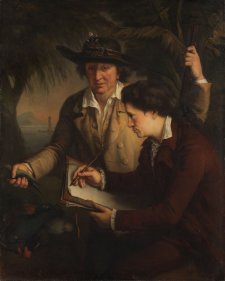
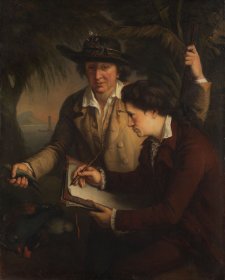
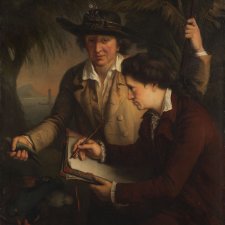
The portrait of Dr. Johann Reinhold Forster and his son George Forster from 1780, is one of the oldest in the NPG's collection.
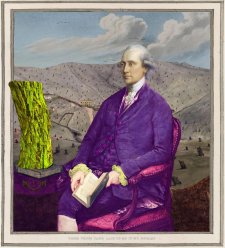
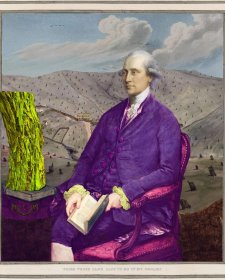
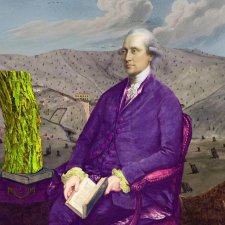
from Saturday 24 August 2024
Discover 50 colonial-era collection works alongside 50 works by contemporary artist Joan Ross. With wit and wry critique, Ross will make you consider the artist’s role in determining which stories are told, about who and why.